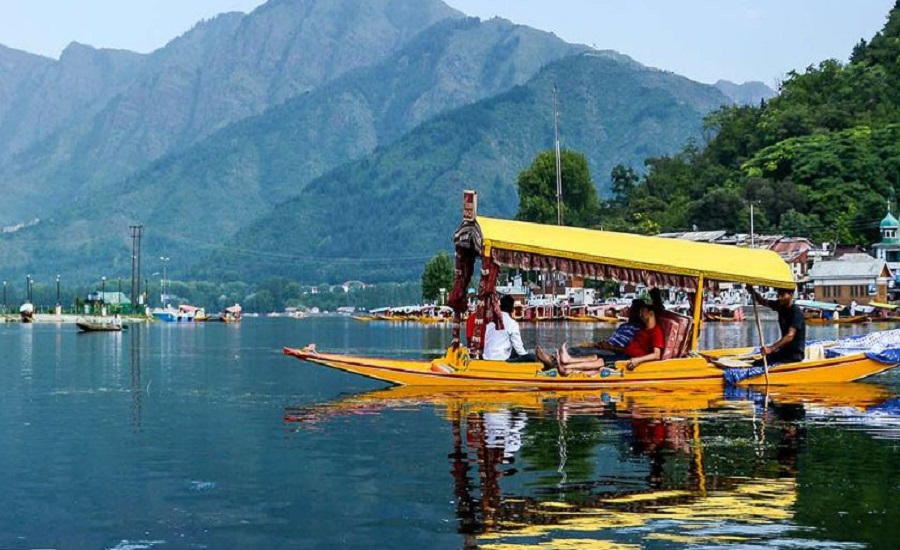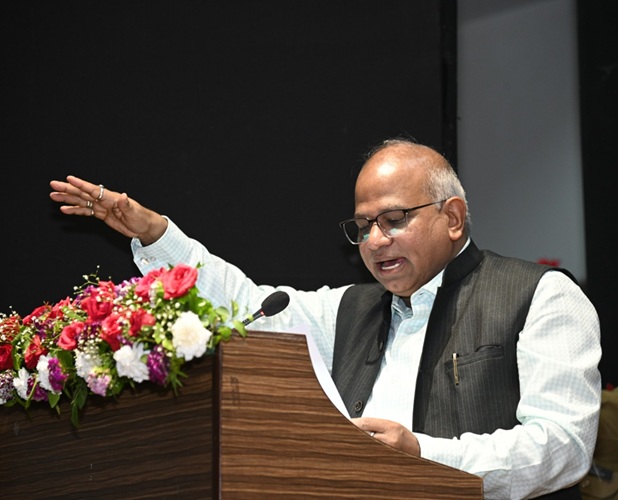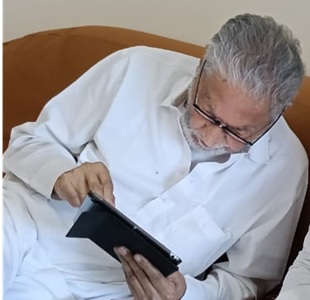A G NOORANI
KASHMIR is in flames today. This is not a characterisation of the violence which has gripped it since 1989. It is far deeper than that. Kashmir fears that the government of India headed by Prime Minister Narendra Modi, is out to foist on Jammu and Kashmir a Hindu chief minister for the first time since 1947. They are not wrong.
The door was opened wide by Mufti Mohammed Sayeed in 1999, when, spurning the offer of a coalition with Omar Abdullah’s National Conference, he formed a coalition with the BJP. Narendra Modi flew to Srinagar for the Mufti’s oath-taking and rudely snubbed him publicly when, in his speech, the Mufti suggested reconciliation with Pakistan. Mufti’s closest adviser, the former chairman of the J&K Bank and then finance minister, stitched up the accord in a lengthy document, couched in the language of American academia, which gave Kashmir a rich dose of verbiage but not even a token concession.
Haseeb Drabu, a man for all seasons, had one Ram Madhav as his partner in the prolonged parleys in, among other places, Mumbai which has its own charms to offer especially to the gullible. Ram Madhav was an RSS activist seconded to the BJP. Under the deal the speaker of the legislative assembly was to belong to the BJP. Mufti’s daughter Mehbooba stuck to the accord even after her father’s death. It was cancelled much later.
By then, the BJP government in New Delhi had done its sums and put its results before parliament on Aug 5, 2019, shortly after Modi gained a second-term in office as prime minister in May 2019.
On Aug 5 came the constitutional tsunami. Some drastic laws and policies were implemented. July 13, Kashmir Martyrs’ Day, and Dec 5, Sheikh Abdullah’s birth anniversary, were removed from the official calendar. Urdu ceased to be the official language.
There came three cruel, dishonest and brazenly unconstitutional decisions announced in parliament on Aug 5, 2019. They were 1) scrapping of Article 370 of the constitution of India which was designed to guarantee Kashmir’s identity and autonomy. Under the constitution, India cannot take any decision on the ‘final disposition’ of Kashmir without its consent. Its popular leader Sheikh Abdullah voiced his protest in 1972 as preparation for the Indira Gandhi-Zulfikar Ali Bhutto summit at Shimla. Kashmir was not even consulted he angrily declared.
Kashmir’s chief minister then was one Ghulam Mohammed Sadiq, a bogus leftist to the core. He was the one who brought the Congress party to Kashmir and became a Congressman. In 1975, Sheikh Sahib, now chief minister, revived his National Conference to Indira Gandhi’s dismay. Since 2014, Narendra Modi set about fulfilling the BJP’s dream of the ‘abrogation’ of Article 370, which was also Sadiq’s dream. But Article 370 was by its very terms unamendable by the parliament of India. This was constitutional hooliganism, which played on India’s growing Hindu nationalistic fervour.
Next Ladakh was lopped off to be directly ruled from New Delhi. Kashmir continued its partnership constitution with Jammu. This implied the centre’s amendment of Kashmir’s constitution which parliament had no power lawfully to do. Kashmir is centrally ruled.
In February 2021, the separate J&K cadres of India’s civil service was abolished. There are 58 civil service officers and very few are Muslims. Of the eight civil service officers from outside only three are Muslims. Of the top 11 bureaucrats only one is a Muslim.
But the worst blow of Aug 5, 2019, was the law on the delimitation of constituencies. It set up a delimitation commission. The government appointed a retired judge of the Bombay High Court as chairman. On Dec 20, 2021, it revealed a draft proposal recommending that the number of assembly seats in Jammu be increased from 37 to 43 and in Kashmir from 46 to 47.
The main political parties in the region feel that the draft proposal favours Jammu over Muslim-majority Kashmir in terms of electoral balance. As has been reported by journalist Tariq Bhat, the People’s Alliance for Gupkar Declaration feels the commission has acted at the BJP’s behest and has disregarded Kashmir’s greater numbers as compared to Jammu as per the 2011 census; a calculation based on the census would have resulted in 51 seats for Kashmir and 39 for Jammu, he pointed out. “There are 15 Muslim-majority seats in Jammu and if their boundaries have been redrawn in a manner that they cease to be Muslim-majority, that will reduce the representation of Muslims from Jammu in the assembly.”
This serves the BJP’s purpose. It is on its way to achieving its goal of reducing the political clout of Kashmir through delimitation, and as Bhat points out, and many others fear, it could put in place the first Hindu chief minister in Jammu and Kashmir with the help of certain allies in Kashmir.






0 Comments